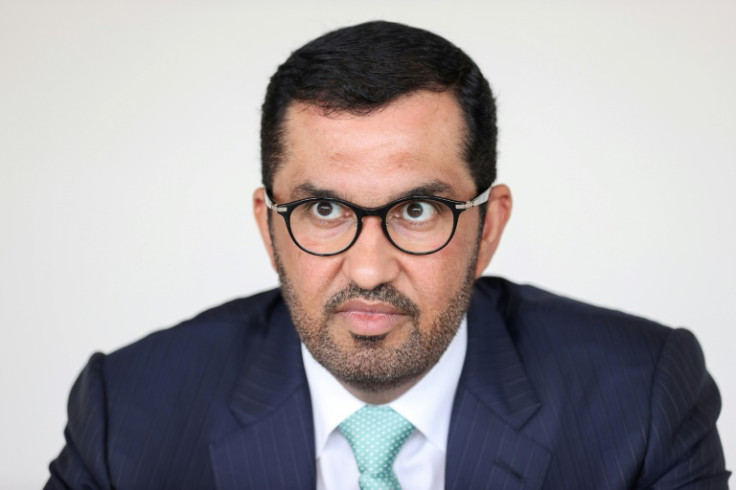COP28 President-Designate Al Jaber Visits Ethiopia To Attend AMCEN

COP28 President-Designate, Sultan bin Ahmed Al Jaber, visited Ethiopia to attend the African Ministerial Conference on the Environment (AMCEN), where he spoke about the urgent need to increase finance to African countries to ensure zero-carbon, climate-resilient future.
Al Jaber, who also serves as UAE's Minister of Industry and Advanced Technology, urged that the African continent should receive more funds to speed up the energy transition while focusing on common people's lives.
The upcoming COP28 event, hosted by UAE, will be held from Nov. 30 to Dec. 12 this year in Expo City Dubai.
ACMEN was established in 1985 as an international platform where ministers responsible for the environment and natural resources from African countries come together to discuss best practices and solutions to collaborate for a sustainable environment.
Being President-Designate of COP28, Al Jaber attended the event this year and noted that even the "collective response" from all the countries "to climate change is nowhere near good enough."
At the African Ministerial Conference on the Environment in Ethiopia, #DrSultanAlJaber recognized Africa's position at the frontline of climate impacts while highlighting its performance & potential as a leading force in the energy transition. pic.twitter.com/QjQbEx4RQJ
— COP28 UAE (@COP28_UAE) August 17, 2023
"From Pakistan to Hawaii, we have seen too many lives and livelihoods devasted," he pointed out during his speech, WAM reported. "Yet, Africa has been facing extreme climate conditions with greater impacts for longer than most."
The minister noted that there has been no rain in the Horn of Africa for over four seasons, adding that 23 million people across Ethiopia, Kenya and Somalia are facing severe hunger.
He continued, "Lake Chad, once the lifeblood for millions of people in Nigeria, Niger, Chad, and Cameroon, has shrunk to one-tenth of its size. And continuous flooding has ruined crops and spread vector-borne diseases across Malawi, Mozambique, Madagascar, Zambia, and Rwanda."
Minister Al Jaber praised Ethiopia's efforts to address climate change, adding that it has almost 100 percent of energy produced from renewable hydropower and it is just one country that is leading the way with its Green Legacy Initiative (GLI).
He went on to share that "since 2019 the GLI has planted over 25 billion seedlings, enhanced sustainable agriculture, strengthened food security, exported healthy food to foreign markets, and created almost 1 million new green jobs along the way."
However, the chronic lack of available, accessible, and affordable climate finance has been one of the major reasons for Ethiopia to not progress, noting that currently, only "one-tenth of global climate finance finds its way to Africa."
The minister shared that almost 250 billion dollars are required annually to meet Africa's Nationally Determined Contribution (NDC) commitments through 2030, as per African Development Bank. Although the continent of 54 countries - which contributes less than 5 percent of global emissions - receives less than 30 billion every year.
"Private finance flows to Africa are a fraction of what is disbursed to the rest of the world. These are the realities. They need to be fixed. And they need to be fixed now," he added.
© Copyright 2023 IBTimes AE. All rights reserved.





















